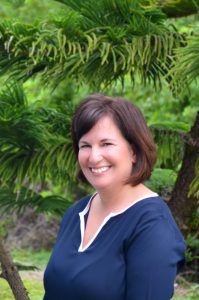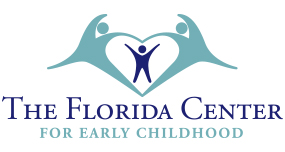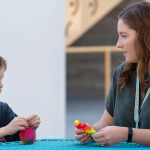Q-and-A with Tamra Cajo for Alcohol Awareness Month
The Director of the Florida Center for Early Childhood’s Fetal Alcohol Spectrum Disorder Clinic gets candid about FASD.
 What is FASD and how does it affect children?
What is FASD and how does it affect children?
Fetal Alcohol Spectrum Disorder (FASD) is a term used to describe the range of disabilities that occur in an individual whose mother drank alcohol during pregnancy. These affects may include lifelong physical, cognitive and emotional disabilities.
What is the purpose of the Florida Center’s FASD clinic?
The Florida Center is the only agency in the State of Florida providing Fetal Alcohol Diagnostic evaluation, treatment options, and training. Families from all over travel to our center for this very specialized multidisciplinary evaluation (which includes a speech language pathologist, occupational therapist and neuropsychologist).
What makes a FASD diagnosis challenging?
The challenge of FASD is that the disorder effects people very differently. Some FASD patients have facial abnormalities associated with the disease while others look normal, but are struggling with brain-based challenges – we often call this an invisible disability. People tend to treat the latter as if they have behavior problems and assume they are willfully disobedient or manipulative. In reality, they are struggling with some serious challenges. It is important for us to assess the individual, rather than the diagnosis, because we can then cater to their individual needs and help them accordingly.
What makes the Florida Center’s FASD Clinic different?
With families coming from all over the state desperate for answers, The Florida Center for Early Childhood creates an environment where the families feel heard and supported. Every family that goes through the clinic becomes part of our FASD family. We are here for them during and after the clinic serving as a source of information and support.
Which FASD case was the most memorable for you and why?
My most memorable case thus far was incredibly inspiring. An 83-year-old grandmother was raising her two grandsons. All three parties had experienced more trauma than one family should go through. She had them evaluated and both of the boys received a Fetal Alcohol Syndrome diagnosis – the most severe of the FASD spectrum. I gave her a book to read, not really expecting her do so. However, she returned with her completed book in hand and was craving more information. After several sit-down discussions, she became an FASD advocate for The Florida Center spreading important information to pregnant women in Arcadia about the severity of FASD and how they could prevent it by avoiding alcohol.


